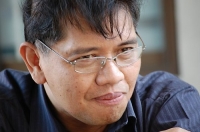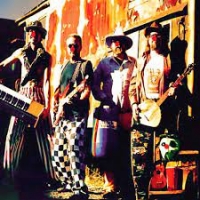Vocal Sheet Music
 "...You can't over-hype Sam Phillips ... think of Elvis Presley, Jerry Lee Lewis, Johnny Cash, Roy Orbison, Carl Perkins, Howlin' Wolf, B.B. King: if you were associated with just one of those names, you'd be immortal" Andy McLenon
"...You can't over-hype Sam Phillips ... think of Elvis Presley, Jerry Lee Lewis, Johnny Cash, Roy Orbison, Carl Perkins, Howlin' Wolf, B.B. King: if you were associated with just one of those names, you'd be immortal" Andy McLenon
Taylor Swift

Taylor Alison Swift (born December 13, 1989) is an American country-pop singer-songwriter. In 2006, she released her debut single "Tim McGraw", which peaked at number six on the Billboard country charts. Later in October 2006, she released her self-titled debut album, which produced five hit singles on the Billboard Hot Country Songs charts and was certified 3× Multi-Platinum by the RIAA. The New York Times described Swift as "one of pop's finest songwriters, country’s foremost pragmatist and more in touch with her inner life than most adults".
According to Nielsen SoundScan, Swift was the biggest selling artist of 2008 in America with combined sales of more than four million albums. Swift's Fearless and her self-titled album finished 2008 at number three and number six respectively, with sales of 2.1 and 1.5 million. She was the first artist in the history of Nielsen SoundScan to have two different albums in the Top 10 on the year end album chart. Fearless has topped the Billboard 200 in 11 non-consecutive weeks. No album has spent more time at number one since 1999-2000. It also was the first album by a female artist in country music history to log eight weeks at #1 on The Billboard 200. In mid-January 2009, Swift became the first country artist to top the 2 million mark in paid downloads with three different songs. As of the week ending February 8, 2009, Swift's single "Love Story" became the country song with most paid downloads in history and the first country song to top the Mainstream Top 40 chart. According to the 2009 issue of Forbes, Swift is ranked as the 69th most powerful celebrity with over $18 million dollars in earnings this year.
According to Nielsen SoundScan, Swift was the biggest selling artist of 2008 in America with combined sales of more than four million albums. Swift's Fearless and her self-titled album finished 2008 at number three and number six respectively, with sales of 2.1 and 1.5 million. She was the first artist in the history of Nielsen SoundScan to have two different albums in the Top 10 on the year end album chart. Fearless has topped the Billboard 200 in 11 non-consecutive weeks. No album has spent more time at number one since 1999-2000. It also was the first album by a female artist in country music history to log eight weeks at #1 on The Billboard 200. In mid-January 2009, Swift became the first country artist to top the 2 million mark in paid downloads with three different songs. As of the week ending February 8, 2009, Swift's single "Love Story" became the country song with most paid downloads in history and the first country song to top the Mainstream Top 40 chart. According to the 2009 issue of Forbes, Swift is ranked as the 69th most powerful celebrity with over $18 million dollars in earnings this year.
Gilbert DeBenedetti
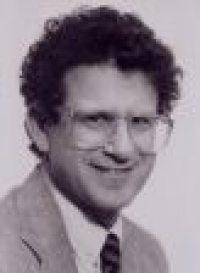
Pittsburgh, Pennsylvania (USA), getting degrees in Music from Carnegie-Mellon University and from the University of Pittsburgh.
Besides arranging music for piano, I have enjoyed teaching Music Theory. I taught that subject at the University of Pittsburgh at Greensburg and at the Pittsburgh High School for Creative and Performing Arts (CAPA). I also have been involved with the Advanced Placement Music Theory Exam, developed and administered by the Educational Testing Service and the College Board.
Besides arranging music for piano, I have enjoyed teaching Music Theory. I taught that subject at the University of Pittsburgh at Greensburg and at the Pittsburgh High School for Creative and Performing Arts (CAPA). I also have been involved with the Advanced Placement Music Theory Exam, developed and administered by the Educational Testing Service and the College Board.
Evert Taube
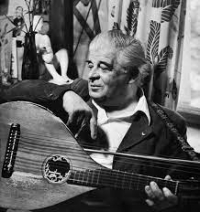
Axel Evert Taube was a Swedish author, artist, composer and singer. He is widely regarded as one of Sweden's most respected musicians and the foremost troubadour of the Swedish ballad tradition in the 20th century.
Traditional

traditional music
Josh Groban
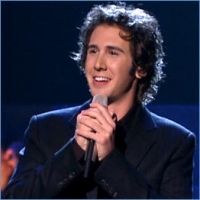
Joshua Winslow Groban (born February 27, 1981) is a Grammy-nominated American singer-songwriter. He has concentrated his career so far mostly in concert singing and recordings, although he has stated that he wishes to pursue musical theater in the future.
Various music critics have described Groban's voice in different ways, with some referring to him as a tenor and others as a baritone. In performance, Groban's music goes as low as G2 (as in the song "To Where You Are") and extends up to at least B4 flat or the B flat above middle C (as heard in "You Raise Me Up"). He also hits a High B during the Baywatch theme song in his Emmy performance of TV Theme Songs on September 21, 2008.This places his voice lower than the tenor range on the low end, and just short of Tenor C, and therefore above the baritone range, on the high end.
Some of Groban's musical influences have been Radiohead, Paul Simon, Sting, Peter Gabriel, and Björk. He says he is able to look up to anyone, musically, who has pushed the boundaries and stepped outside of the box. As for vocal influences, "anyone who told a story with their songs," including Mandy Patinkin, Klaus Nomi, George Hearn, and Luciano Pavarotti.
Various music critics have described Groban's voice in different ways, with some referring to him as a tenor and others as a baritone. In performance, Groban's music goes as low as G2 (as in the song "To Where You Are") and extends up to at least B4 flat or the B flat above middle C (as heard in "You Raise Me Up"). He also hits a High B during the Baywatch theme song in his Emmy performance of TV Theme Songs on September 21, 2008.This places his voice lower than the tenor range on the low end, and just short of Tenor C, and therefore above the baritone range, on the high end.
Some of Groban's musical influences have been Radiohead, Paul Simon, Sting, Peter Gabriel, and Björk. He says he is able to look up to anyone, musically, who has pushed the boundaries and stepped outside of the box. As for vocal influences, "anyone who told a story with their songs," including Mandy Patinkin, Klaus Nomi, George Hearn, and Luciano Pavarotti.
Marco Borsato
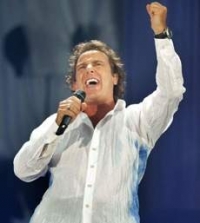
Marco Roberto Borsato (born December 21, 1966) is a popular Dutch singer, previously performing in Italian only to be recognised by the mainstream public when switching to Dutch in 1994. He is married to Leontine Ruiters and has three children.
Marco debuted as a singer after he won the Dutch Soundmixshow programme on April 7, 1990 with his rendition of the song At This Moment by Billy Vera.
He had three albums in Italian and became popular with a larger audience when he brought out a Dutch-language album and the single "Dromen Zijn Bedrog" reached number one in the Dutch charts.
Many of his songs are actually Dutch covers or adaptations of Italian songs, (for example by Riccardo Fogli, Giorgia, Riccardo Cocciante and Zucchero). In particular, he had quite a success with an adaptation of Margherita by Riccardo Cocciante.
Marco debuted as a singer after he won the Dutch Soundmixshow programme on April 7, 1990 with his rendition of the song At This Moment by Billy Vera.
He had three albums in Italian and became popular with a larger audience when he brought out a Dutch-language album and the single "Dromen Zijn Bedrog" reached number one in the Dutch charts.
Many of his songs are actually Dutch covers or adaptations of Italian songs, (for example by Riccardo Fogli, Giorgia, Riccardo Cocciante and Zucchero). In particular, he had quite a success with an adaptation of Margherita by Riccardo Cocciante.
Tim Rice
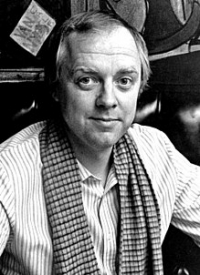
Sir Timothy Miles Bindon Rice (born 10 November 1944) is an English author and Academy Award, Golden Globe Award, Emmy Award, Tony Award, and Grammy Award-winning lyricist. He is best known for his collaborations with Andrew Lloyd Webber, with whom he wrote Joseph and the Amazing Technicolor Dreamcoat, Jesus Christ Superstar, and Evita; with Björn Ulvaeus and Benny Andersson of ABBA, with whom he wrote Chess; for additional songs for the 2011 West End revival of The Wizard of Oz; and for his work with Alan Menken on Disney's Aladdin, Beauty and the Beast, and the musical King David. He also worked with Elton John on Disney's The Lion King, the musical Aida, and DreamWorks Animation's The Road to El Dorado and Ennio Morricone.
One of the most celebrated lyricists in British popular culture, Rice was knighted by Elizabeth II for services to music in 1994. He has a star on the Hollywood Walk of Fame, is an inductee into the Songwriter's Hall of Fame, is a Disney Legend recipient, and is a fellow of the British Academy of Songwriters, Composers and Authors. The 2016 Sunday Times Rich List values Rice at £150m; the 15th-richest music millionaire in the UK. He is one of fifteen artists to have won an Emmy, Grammy, Oscar, and Tony award.
One of the most celebrated lyricists in British popular culture, Rice was knighted by Elizabeth II for services to music in 1994. He has a star on the Hollywood Walk of Fame, is an inductee into the Songwriter's Hall of Fame, is a Disney Legend recipient, and is a fellow of the British Academy of Songwriters, Composers and Authors. The 2016 Sunday Times Rich List values Rice at £150m; the 15th-richest music millionaire in the UK. He is one of fifteen artists to have won an Emmy, Grammy, Oscar, and Tony award.
Domenico Modugno
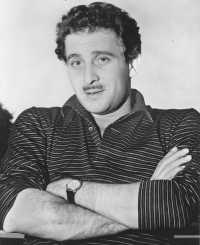
Domenico Modugno (Italian pronunciation: ; 9 January 1928 – 6 August 1994) was an Italian singer, songwriter, actor, guitarist, and later in life, a member of the Italian Parliament. He is known for his 1958 international hit song "Nel blu dipinto di blu", for which he received Grammy Awards for Record of the Year and Song of the Year. He is considered the first Italian cantautore.
Bach

Johann Sebastian Bach (31 March 1685 – 28 July 1750) was a German composer and organist whose sacred and secular works for choir, orchestra, and solo instruments drew together the strands of the Baroque period and brought it to its ultimate maturity. Although he introduced no new forms, he enriched the prevailing German style with a robust contrapuntal technique, an unrivalled control of harmonic and motivic organisation in composition for diverse musical forces, and the adaptation of rhythms and textures from abroad, particularly Italy and France.
Revered for their intellectual depth and technical and artistic beauty, Bach's works include the Brandenburg concertos; the Goldberg Variations; the English Suites, French Suites, Partitas, and Well-Tempered Clavier; the Mass in B Minor; the St. Matthew Passion; the St. John Passion; The Musical Offering; The Art of Fugue; the Sonatas and Partitas for violin solo; the Cello Suites; more than 200 surviving cantatas; and a similar number of organ works, including the celebrated Toccata and Fugue in D Minor.
While Bach's fame as an organist was great during his lifetime, he was not particularly well-known as a composer. His adherence to Baroque forms and contrapuntal style was considered "old-fashioned" by his contemporaries, especially late in his career when the musical fashion tended towards Rococo and later Classical styles. A revival of interest and performances of his music began early in the 19th century, and he is now widely considered to be one of the greatest composers in the Western tradition.
Revered for their intellectual depth and technical and artistic beauty, Bach's works include the Brandenburg concertos; the Goldberg Variations; the English Suites, French Suites, Partitas, and Well-Tempered Clavier; the Mass in B Minor; the St. Matthew Passion; the St. John Passion; The Musical Offering; The Art of Fugue; the Sonatas and Partitas for violin solo; the Cello Suites; more than 200 surviving cantatas; and a similar number of organ works, including the celebrated Toccata and Fugue in D Minor.
While Bach's fame as an organist was great during his lifetime, he was not particularly well-known as a composer. His adherence to Baroque forms and contrapuntal style was considered "old-fashioned" by his contemporaries, especially late in his career when the musical fashion tended towards Rococo and later Classical styles. A revival of interest and performances of his music began early in the 19th century, and he is now widely considered to be one of the greatest composers in the Western tradition.
Ravel

Joseph-Maurice Ravel (March 7, 1875 – December 28, 1937) was a French composer of Impressionist music known especially for his melodies, orchestral and instrumental textures and effects. Much of his piano music, chamber music, vocal music and orchestral music has entered the standard concert repertoire.
Ravel's piano compositions, such as Jeux d'eau, Miroirs and Gaspard de la Nuit, demand considerable virtuosity from the performer, and his orchestral music, including Daphnis et Chloé and his arrangement of Modest Mussorgsky's Pictures at an Exhibition, uses a variety of sound and instrumentation very effectively.
Ravel is perhaps known best for his orchestral work, Boléro (1928), which he considered trivial and once described as "a piece for orchestra without music."
According to SACEM, Ravel's estate earns more royalties than that of any other French musician. According to international copyright law, Ravel's works are public domain since January 1, 2008 in most countries. In France, due to anomalous copyright law extensions to account for the two world wars, they will not enter the public domain until 2015.
Ravel's piano compositions, such as Jeux d'eau, Miroirs and Gaspard de la Nuit, demand considerable virtuosity from the performer, and his orchestral music, including Daphnis et Chloé and his arrangement of Modest Mussorgsky's Pictures at an Exhibition, uses a variety of sound and instrumentation very effectively.
Ravel is perhaps known best for his orchestral work, Boléro (1928), which he considered trivial and once described as "a piece for orchestra without music."
According to SACEM, Ravel's estate earns more royalties than that of any other French musician. According to international copyright law, Ravel's works are public domain since January 1, 2008 in most countries. In France, due to anomalous copyright law extensions to account for the two world wars, they will not enter the public domain until 2015.
Within Temptation
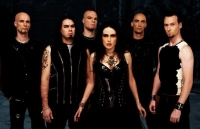
Within Temptation is a Dutch rock/metal band. The band was founded in 1996 by vocalist Sharon den Adel and guitarist Robert Westerholt. Their music is described as symphonic metal, gothic metal, although in an interview, Den Adel said they fell into a symphonic rock genre with various influences, and in a later interview with 3VOOR12, Sharon stated that "we consider ourselves more a symphonic rock band ... we are in my opinion no gothic band".
After the release of their first album Enter, the band became prominent in the underground scene. However it was not until 2001 that they became known to the general public, with the single "Ice Queen" from the album Mother Earth, which reached #2 on the charts. Since then, the band won the Conamus Exportprijs five years in a row. Their next album The Silent Force debuted at #1 on the Dutch charts, as did their latest, The Heart of Everything. In 2008 they released a live DVD and CD, Black Symphony, recorded with the Metropole Orchestra.
On August 11, 2009 Within Temptation announced that they would be releasing a live album consisting of acoustic sets from their theatre tour, entitled An Acoustic Night At The Theatre, which was released on October 30th.
After the release of their first album Enter, the band became prominent in the underground scene. However it was not until 2001 that they became known to the general public, with the single "Ice Queen" from the album Mother Earth, which reached #2 on the charts. Since then, the band won the Conamus Exportprijs five years in a row. Their next album The Silent Force debuted at #1 on the Dutch charts, as did their latest, The Heart of Everything. In 2008 they released a live DVD and CD, Black Symphony, recorded with the Metropole Orchestra.
On August 11, 2009 Within Temptation announced that they would be releasing a live album consisting of acoustic sets from their theatre tour, entitled An Acoustic Night At The Theatre, which was released on October 30th.
Marvin Hamlisch
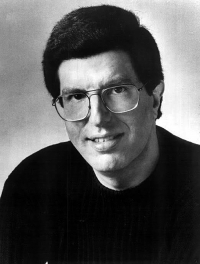
Marvin Frederick Hamlisch (June 2, 1944 – August 6, 2012) was an American composer and conductor. Hamlisch was one of only sixteen people to win Emmy, Grammy, Oscar and Tony awards. This collection of all four is referred to as an "EGOT". He is one of only two people (along with composer Richard Rodgers) to have won those four prizes and a Pulitzer Prize ("PEGOT").
Giuseppe Cappotto
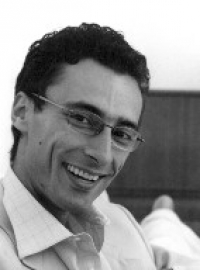
GIUSEPPE CAPPOTTO, born in 1965, appreciated performer and musical educator, has very well obtained the Diploma in Piano at G. Verdi Turin Conservatory in 1986; he has then continued the studies obtaining the Diploma in Music Teaching and in Choral Music, both summa cum laude.Winner of Prize Renzo Ridolfo 1988 and of Absolute First Prize at the International Competition BOTTEGA 91of the Comunal Teathre of Treviso (Italy), has worked as deputy conductor in opera in many italian teathres, even with conductors such as Massimo De Bernart, Richard Bonynge and Peter Maag.
Xavier Montsalvatge
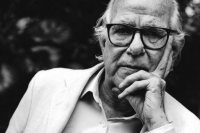
Xavier Montsalvatge i Bassols was a Spanish composer and music critic. He was one of the most influential music figures in Catalan music during the latter half of the 20th century.
Demi Lovato

Demetria "Demi" Devonne Lovato (born August 20, 1992) is an American actress, singer and songwriter. She is best known for her role as Mitchie Torres in the Disney Channel Original Movie Camp Rock and for her role as Charlotte Adams in the short five-minute Disney Channel series As The Bell Rings. She is currently on the Burning Up Tour with the Jonas Brothers.
Alan Silvestri
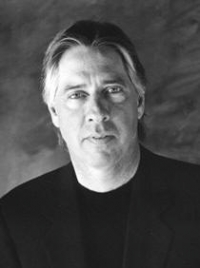
Alan Anthony Silvestri (born March 26, 1950) is an Academy Award-nominated American film score composer and conductor.
estri is best known for his collaborations with director Robert Zemeckis, having scored Romancing the Stone (1984), the Back to the Future trilogy (1985, 1989, 1990), Who Framed Roger Rabbit (1988), Death Becomes Her (1992), Forrest Gump (1994), Contact (1997), Cast Away (2000), The Polar Express (2004) , Beowulf (2007) and Disney's A Christmas Carol (2009).
Silvestri is also known for his work on Predator (1987) and Predator 2 (1990), both of which are considered preeminent examples of action/sci-fi film scores. He has also begun a collaboration with director Stephen Sommers, scoring the films The Mummy Returns in 2001, Van Helsing in 2004 and G.I. Joe: The Rise of Cobra in 2009.
Silvestri also composed music for television, including for the series Starsky & Hutch, CHiPs , Manimal and HBO's Tales from the Crypt.
Silvestri was 21 years old when he started his film/televsion composing career.
His early style is marked by a strong use of the "octatonic scale," as well as an eclectic use of different notes and instruments.
It was thought that Silvestri was allegedly inspired by the works of Barry DeVorzon, Perry Botkin, Jr., Lalo Schifrin, Jerry Fielding, Jerry Goldsmith and John Williams.
estri is best known for his collaborations with director Robert Zemeckis, having scored Romancing the Stone (1984), the Back to the Future trilogy (1985, 1989, 1990), Who Framed Roger Rabbit (1988), Death Becomes Her (1992), Forrest Gump (1994), Contact (1997), Cast Away (2000), The Polar Express (2004) , Beowulf (2007) and Disney's A Christmas Carol (2009).
Silvestri is also known for his work on Predator (1987) and Predator 2 (1990), both of which are considered preeminent examples of action/sci-fi film scores. He has also begun a collaboration with director Stephen Sommers, scoring the films The Mummy Returns in 2001, Van Helsing in 2004 and G.I. Joe: The Rise of Cobra in 2009.
Silvestri also composed music for television, including for the series Starsky & Hutch, CHiPs , Manimal and HBO's Tales from the Crypt.
Silvestri was 21 years old when he started his film/televsion composing career.
His early style is marked by a strong use of the "octatonic scale," as well as an eclectic use of different notes and instruments.
It was thought that Silvestri was allegedly inspired by the works of Barry DeVorzon, Perry Botkin, Jr., Lalo Schifrin, Jerry Fielding, Jerry Goldsmith and John Williams.
Handel

George Frideric Handel (Friday, 23 February 1685 - Saturday, 14 April 1759) was a German-born Baroque composer who is famous for his operas, oratorios and concerti grossi. Born as Georg Friedrich Handel in Halle, he spent most of his adult life in England, becoming a subject of the British crown on 22 January 1727. His most famous works are Messiah, an oratorio set to texts from the King James Bible; Water Music; and Music for the Royal Fireworks. Strongly influenced by the techniques of the great composers of the Italian Baroque and the English composer Henry Purcell, his music was known to many significant composers who came after him, including Haydn, Mozart, and Beethoven.
Handel's compositions include 42 operas; 29 oratorios; more than 120 cantatas, trios and duets; numerous arias; chamber music; a large number of ecumenical pieces; odes and serenatas; and sixteen organ concerti. His most famous work, the Messiah oratorio with its "Hallelujah" chorus, is among the most popular works in choral music and has become a centerpiece of the Christmas season. Also popular are the Opus 3 and 6 Concerti Grossi, as well as "The Cuckoo and the Nightingale", in which birds are heard calling during passages played in different keys representing the vocal ranges of two birds. Also notable are his sixteen keyboard suites, especially The Harmonious Blacksmith.
Handel introduced various previously uncommon musical instruments in his works: the viola d'amore and violetta marina (Orlando), the lute (Ode for St. Cecilia's Day), three trombones (Saul), clarinets or small high cornets (Tamerlano), theorbo, French horn (Water Music), lyrichord, double bassoon, viola da gamba, bell chimes, positive organ, and harp (Giulio Cesare, Alexander's Feast).
Handel's compositions include 42 operas; 29 oratorios; more than 120 cantatas, trios and duets; numerous arias; chamber music; a large number of ecumenical pieces; odes and serenatas; and sixteen organ concerti. His most famous work, the Messiah oratorio with its "Hallelujah" chorus, is among the most popular works in choral music and has become a centerpiece of the Christmas season. Also popular are the Opus 3 and 6 Concerti Grossi, as well as "The Cuckoo and the Nightingale", in which birds are heard calling during passages played in different keys representing the vocal ranges of two birds. Also notable are his sixteen keyboard suites, especially The Harmonious Blacksmith.
Handel introduced various previously uncommon musical instruments in his works: the viola d'amore and violetta marina (Orlando), the lute (Ode for St. Cecilia's Day), three trombones (Saul), clarinets or small high cornets (Tamerlano), theorbo, French horn (Water Music), lyrichord, double bassoon, viola da gamba, bell chimes, positive organ, and harp (Giulio Cesare, Alexander's Feast).
Boyz II Men

Boyz II Men is a four-time Grammy Award-winning American R&B/soul singing group from Philadelphia, Pennsylvania. Founded in 1988 as a quintet which originally included Marc Nelson, Boyz II Men found fame as a quartet, with members Nathan Morris, Michael McCary, Shawn Stockman, and Wanya Morris, on Motown Records during the early 1990s. Nelson left the group before their first recording to pursue a solo career.
Based on sales, Boyz II Men is the most successful R&B male vocal group of all time. They recorded five #1 R&B hits between 1992 and 1997 and have sold more than 60 million records. Three of its #1 hits, "End of the Road", "I'll Make Love to You", and "One Sweet Day" , set and broke records for the longest period of time a single remained at #1 on the Billboard Hot 100; the last of them still holds the record. Although "On Bended Knee" did not break any records, it was still an immensely popular song that reached #1 and made Boyz II Men the third artists to replace themselves at the number one spot of the Billboard Hot 100.
Boyz II Men was signed to Motown Records from 1990 to 2000, at which point it was moved to parent label Universal Records. After the 2000 album Nathan Shawn Michael Wanya, Boyz II Men moved to Arista Records. In 2003, Michael McCary left the group due to chronic back problems resulting from scoliosis. As of 2005, Wanya Morris, Shawn Stockman, and Nathan Morris continue to tour and record as a trio. At the 1995 Grammy Awards, the group received four Grammy Award awards for their work, including two for their 1994 sophomore album, II in 1995.
Based on sales, Boyz II Men is the most successful R&B male vocal group of all time. They recorded five #1 R&B hits between 1992 and 1997 and have sold more than 60 million records. Three of its #1 hits, "End of the Road", "I'll Make Love to You", and "One Sweet Day" , set and broke records for the longest period of time a single remained at #1 on the Billboard Hot 100; the last of them still holds the record. Although "On Bended Knee" did not break any records, it was still an immensely popular song that reached #1 and made Boyz II Men the third artists to replace themselves at the number one spot of the Billboard Hot 100.
Boyz II Men was signed to Motown Records from 1990 to 2000, at which point it was moved to parent label Universal Records. After the 2000 album Nathan Shawn Michael Wanya, Boyz II Men moved to Arista Records. In 2003, Michael McCary left the group due to chronic back problems resulting from scoliosis. As of 2005, Wanya Morris, Shawn Stockman, and Nathan Morris continue to tour and record as a trio. At the 1995 Grammy Awards, the group received four Grammy Award awards for their work, including two for their 1994 sophomore album, II in 1995.
Andrew Lloyd Webber

Andrew Lloyd Webber, Baron Lloyd-Webber (born 22 March 1948) is an English composer of musical theatre, the elder son of organist William Lloyd Webber and brother of the cellist Julian Lloyd Webber. Lloyd Webber started composing at the age of six, and published his first piece at the age of nine.
Lloyd Webber has achieved great popular success, with several musicals that have run for more than a decade both in the West End and on Broadway. He has composed 13 musicals, a song cycle, a set of variations, two film scores, and a Latin Requiem Mass. He has also gained a number of honours, including a knighthood in 1992, followed by a peerage from the British Government for services to Music, seven Tony Awards (and 40 nominations), three Grammy Awards (with an additional 60 nominations), an Academy Award (two other nominations), seven Olivier Awards (with 100 nominations), a Golden Globe, and the Kennedy Center Honors in 2006. Several of his songs, notably "The Music of the Night" from The Phantom of the Opera, "I Don't Know How to Love Him" from Jesus Christ Superstar, "Don't Cry for Me, Argentina" from Evita, "Any Dream Will Do" from Joseph and the Amazing Technicolor Dreamcoat and "Memory" from Cats have been widely recorded and were hits outside of their parent musicals. His company, the Really Useful Group, is one of the largest theatre operators in London.
Producers in several parts of the UK have staged productions, including national tours, of Lloyd Webber's musicals under licence from the Really Useful Group. According to britishhitsongwriters.com, he is the one hundredth most successful songwriter in U.K. singles chart history, based on weeks that his compositions have spent on the chart.
Lloyd Webber has achieved great popular success, with several musicals that have run for more than a decade both in the West End and on Broadway. He has composed 13 musicals, a song cycle, a set of variations, two film scores, and a Latin Requiem Mass. He has also gained a number of honours, including a knighthood in 1992, followed by a peerage from the British Government for services to Music, seven Tony Awards (and 40 nominations), three Grammy Awards (with an additional 60 nominations), an Academy Award (two other nominations), seven Olivier Awards (with 100 nominations), a Golden Globe, and the Kennedy Center Honors in 2006. Several of his songs, notably "The Music of the Night" from The Phantom of the Opera, "I Don't Know How to Love Him" from Jesus Christ Superstar, "Don't Cry for Me, Argentina" from Evita, "Any Dream Will Do" from Joseph and the Amazing Technicolor Dreamcoat and "Memory" from Cats have been widely recorded and were hits outside of their parent musicals. His company, the Really Useful Group, is one of the largest theatre operators in London.
Producers in several parts of the UK have staged productions, including national tours, of Lloyd Webber's musicals under licence from the Really Useful Group. According to britishhitsongwriters.com, he is the one hundredth most successful songwriter in U.K. singles chart history, based on weeks that his compositions have spent on the chart.
Hangad Music Ministry

Hangád (Tagalog: "yearning" or "desire") is an inspirational vocal ensemble known for songs like Pananatili, Pagkakaibigan, and Panunumpâ (covered by pop singer Carol Banawa). They have also recorded albums which are co-produced with the Jesuit Music Ministry (JMM), the musical arm of Jesuit Communications Foundation (JesCom) of the Philippine Province of the Society of Jesus.
In 2006, Hangad won an Awit Award for Best Inspirational or Religious Song.[1
In 2006, Hangad won an Awit Award for Best Inspirational or Religious Song.[1
Elvis Presley

Elvis Aaron Presley (January 8, 1935–August 16, 1977, middle name sometimes written Aron)a was an American singer, musician and actor. A cultural icon, he is commonly referred to as the "The King of Rock 'n' Roll" or "The King".
In 1954, Presley began his career as the first performer of rockabilly, an uptempo fusion of country and rhythm and blues with a strong back beat. His novel versions of existing songs, mixing "black" and "white" sounds, made him popular—and controversial—as did his uninhibited stage and television performances. He recorded songs in the rock and roll genre, with tracks like "Hound Dog" and "Jailhouse Rock" later embodying the style. Presley had a versatile voice and had unusually wide success encompassing other genres, including gospel, blues, ballads and pop. To date, he has been inducted into four music halls of fame.
In the 1960s, Presley made the majority of his thirty-one movies—mainly poorly reviewed, but financially successful, musicals. In 1968, he returned with acclaim to live music in a television special, and thereafter performed across the U.S., notably in Las Vegas. Throughout his career, he set records for concert attendance, television ratings and recordings sales. He is one of the best-selling and most influential artists in the history of popular music. Health problems, drug dependency and other factors led to his premature death at age 42.
In 1954, Presley began his career as the first performer of rockabilly, an uptempo fusion of country and rhythm and blues with a strong back beat. His novel versions of existing songs, mixing "black" and "white" sounds, made him popular—and controversial—as did his uninhibited stage and television performances. He recorded songs in the rock and roll genre, with tracks like "Hound Dog" and "Jailhouse Rock" later embodying the style. Presley had a versatile voice and had unusually wide success encompassing other genres, including gospel, blues, ballads and pop. To date, he has been inducted into four music halls of fame.
In the 1960s, Presley made the majority of his thirty-one movies—mainly poorly reviewed, but financially successful, musicals. In 1968, he returned with acclaim to live music in a television special, and thereafter performed across the U.S., notably in Las Vegas. Throughout his career, he set records for concert attendance, television ratings and recordings sales. He is one of the best-selling and most influential artists in the history of popular music. Health problems, drug dependency and other factors led to his premature death at age 42.
Marvin Gaye
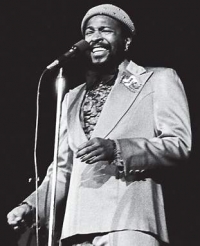
Marvin Pentz Gay, Jr., better known as Marvin Gaye (April 2, 1939 - April 1, 1984) was an American singer-songwriter, drummer, pianist and instrumentalist. Starting his career as a member of the successful doo-wop group The Moonglows in the late fifties, he ventured into a solo career shortly after the group disbanded in 1960 signing with the Tamla subsidiary of Motown Records. After a year as a session drummer, Marvin quickly ranked as the label's top-selling solo artist during the sixties. Due to numerous solo hits including "How Sweet It Is (To Be Loved By You)", "Ain't That Peculiar", "I Heard It Through the Grapevine" and his duet singles with singers such as Mary Wells and Tammi Terrell, he was crowned "The Prince of Motown"and "The Prince of Soul".
Notable for fighting the hit-making, but creatively restrictive, Motown record-making process, in which performers and songwriters and record producers were generally kept in separate camps, Marvin was able to prove with albums like his groundbreaking 1971 album, What's Going On and his 1973 album, Let's Get It On, that he was able to produce his own form of musical expression without relying on the Motown system inspiring fellow Motown artists such as Stevie Wonder nd Michael Jackson to do the same.
His mid-1970s work including the Let's Get It On and I Want You albums helped to influence the quiet storm, urban adult contemporary and slow jam genres. After a self-imposed European exile in the late seventies, Marvin returned to prominence briefly on the 1982 Grammy-winning hit, "Sexual Healing" and the Midnight Love album before his tragic death at the hands of his clergyman father on April 1, 1984. He was posthumously inducted to the Rock and Roll Hall of Fame in 1987.
Notable for fighting the hit-making, but creatively restrictive, Motown record-making process, in which performers and songwriters and record producers were generally kept in separate camps, Marvin was able to prove with albums like his groundbreaking 1971 album, What's Going On and his 1973 album, Let's Get It On, that he was able to produce his own form of musical expression without relying on the Motown system inspiring fellow Motown artists such as Stevie Wonder nd Michael Jackson to do the same.
His mid-1970s work including the Let's Get It On and I Want You albums helped to influence the quiet storm, urban adult contemporary and slow jam genres. After a self-imposed European exile in the late seventies, Marvin returned to prominence briefly on the 1982 Grammy-winning hit, "Sexual Healing" and the Midnight Love album before his tragic death at the hands of his clergyman father on April 1, 1984. He was posthumously inducted to the Rock and Roll Hall of Fame in 1987.
Steven Curtis Chapman

Steven Curtis Chapman (born November 21, 1962) is an American contemporary Christian music singer, songwriter, record producer, actor, author, and social activist.Chapman began his career in the late 1980s as a songwriter and performer of contemporary Christian music and has since been recognized as the most awarded artist in Christian music, releasing over 25 albums. He has also won five Grammy awards and 59 Gospel Music Association Dove Awards, more than any other artist in history. His seven "Artist of the Year" Dove Awards are also an industry record. As of 2014, Chapman has sold more than 10 million albums and has 10 RIAA-certified Gold or Platinum albums.
Randy Newman
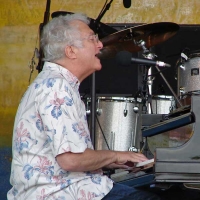
Randall Stuart “Randy” Newman (born November 28, 1943) is an American singer/songwriter, arranger, composer, and pianist who is notable for his mordant (and often satirical) pop songs and for his many film scores.
Newman is noted for his practice of writing lyrics from the perspective of a character far removed from Newman's own biography. For example, the 1972 song "Sail Away" is written as a slave trader's sales pitch to attract slaves, while the narrator of "Political Science" is a U.S. nationalist who complains of worldwide ingratitude toward America and proposes a brutally ironic final solution. One of his biggest hits, "Short People" was written from the perspective of "a lunatic" who hates short people. Since the 1980s, Newman has worked mostly as a film composer. His film scores include Ragtime, Awakenings, The Natural, Leatherheads, James and the Giant Peach, Meet the Parents and Seabiscuit. He has scored five Disney-Pixar films: Toy Story, A Bug's Life, Toy Story 2, Monsters, Inc. and Cars. Most recently he scored Princess and the Frog and is set to return for Toy Story 3 and Cars 2.
He has been singled out for a number of awards by his colleagues, including an Academy Award, two Emmy Awards, four Grammy Awards, and the Governor's Award from the Recording Academy. Randy Newman was inducted into the Songwriters Hall of Fame in 2002. In 2007, Newman was inducted as a Disney Legend.
Newman is noted for his practice of writing lyrics from the perspective of a character far removed from Newman's own biography. For example, the 1972 song "Sail Away" is written as a slave trader's sales pitch to attract slaves, while the narrator of "Political Science" is a U.S. nationalist who complains of worldwide ingratitude toward America and proposes a brutally ironic final solution. One of his biggest hits, "Short People" was written from the perspective of "a lunatic" who hates short people. Since the 1980s, Newman has worked mostly as a film composer. His film scores include Ragtime, Awakenings, The Natural, Leatherheads, James and the Giant Peach, Meet the Parents and Seabiscuit. He has scored five Disney-Pixar films: Toy Story, A Bug's Life, Toy Story 2, Monsters, Inc. and Cars. Most recently he scored Princess and the Frog and is set to return for Toy Story 3 and Cars 2.
He has been singled out for a number of awards by his colleagues, including an Academy Award, two Emmy Awards, four Grammy Awards, and the Governor's Award from the Recording Academy. Randy Newman was inducted into the Songwriters Hall of Fame in 2002. In 2007, Newman was inducted as a Disney Legend.
Regina Spektor

Regina Spektor (born February 18, 1980) is a Soviet-born Jewish-American singer-songwriter and pianist. Her music is associated with the anti-folk scene centered on New York City's East Village.
Spektor has said that she has created 700 songs, but that she rarely writes any of them down. She has also stated that she never aspired to write songs herself, but songs seem to just flow to her. Spektor possesses a broad vocal range and uses the full extent of it. She also explores a variety of different and somewhat unorthodox vocal techniques, such as verses composed entirely of buzzing noises made with the lips and beatbox-style flourishes in the middle of ballads, and also makes use of such unusual musical techniques as using a drum stick to tap rhythms on the body of the piano or chair.
Her lyrics are equally eclectic, often taking the form of abstract narratives or first-person character studies, similar to short stories or vignettes put to song. Spektor usually sings in English, though she sometimes includes a few words or verses of Latin, Russian, French, and other languages in her songs.
Spektor has said that she has created 700 songs, but that she rarely writes any of them down. She has also stated that she never aspired to write songs herself, but songs seem to just flow to her. Spektor possesses a broad vocal range and uses the full extent of it. She also explores a variety of different and somewhat unorthodox vocal techniques, such as verses composed entirely of buzzing noises made with the lips and beatbox-style flourishes in the middle of ballads, and also makes use of such unusual musical techniques as using a drum stick to tap rhythms on the body of the piano or chair.
Her lyrics are equally eclectic, often taking the form of abstract narratives or first-person character studies, similar to short stories or vignettes put to song. Spektor usually sings in English, though she sometimes includes a few words or verses of Latin, Russian, French, and other languages in her songs.
Amy Winehouse

Amy Jade Winehouse (born 14 September 1983) is an English singer-songwriter, known for her eclectic mix of various musical genres including soul, jazz, rock & roll and R&B.
Winehouse's 2003 debut album Frank did well, both commercially and critically, in her native Britain. It was nominated for the Mercury Prize. Her 2006 follow-up album Back to Black led to six Grammy Award nominations and five wins, tying the record for the most wins by a female artist in a single night, and made Winehouse the first British singer to win five Grammys, including three of the "Big Four": Best New Artist, Record of the Year and Song of the Year. On February 14, 2007, she won a BRIT Award for Best British Female Artist; she had also been nominated for Best British Album. She has won the Ivor Novello Award three times, one in 2004 for Best Contemporary Song (musically and lyrically) for "Stronger Than Me", one in 2007 for Best Contemporary Song for "Rehab", and one in 2008 for Best Song Musically and Lyrically for "Love Is a Losing Game", among other prestigious distinctions.
Winehouse has received media attention apart from her singing. Her distinctive style, most notably her signature beehive hairstyle, has spawned imitators and been the muse for fashion designers, as Karl Lagerfeld. The singer's problems with drug and alcohol addiction, as well as self-destructive behaviour, have become regular tabloid news since 2007. She and her husband have been plagued by legal troubles that have led to the cancellation of several tour dates.
In June 2008 it was confirmed that Winehouse has developed early signs of emphysema. Winehouse's father reported in addition she has an irregular heartbeat and said these conditions were brought on by smoking cigarettes and crack cocaine.
Winehouse's 2003 debut album Frank did well, both commercially and critically, in her native Britain. It was nominated for the Mercury Prize. Her 2006 follow-up album Back to Black led to six Grammy Award nominations and five wins, tying the record for the most wins by a female artist in a single night, and made Winehouse the first British singer to win five Grammys, including three of the "Big Four": Best New Artist, Record of the Year and Song of the Year. On February 14, 2007, she won a BRIT Award for Best British Female Artist; she had also been nominated for Best British Album. She has won the Ivor Novello Award three times, one in 2004 for Best Contemporary Song (musically and lyrically) for "Stronger Than Me", one in 2007 for Best Contemporary Song for "Rehab", and one in 2008 for Best Song Musically and Lyrically for "Love Is a Losing Game", among other prestigious distinctions.
Winehouse has received media attention apart from her singing. Her distinctive style, most notably her signature beehive hairstyle, has spawned imitators and been the muse for fashion designers, as Karl Lagerfeld. The singer's problems with drug and alcohol addiction, as well as self-destructive behaviour, have become regular tabloid news since 2007. She and her husband have been plagued by legal troubles that have led to the cancellation of several tour dates.
In June 2008 it was confirmed that Winehouse has developed early signs of emphysema. Winehouse's father reported in addition she has an irregular heartbeat and said these conditions were brought on by smoking cigarettes and crack cocaine.
Melodibog
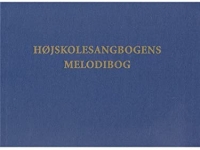
Melodibog A very nice study book containing all the notes of many songs.
Gino Paoli
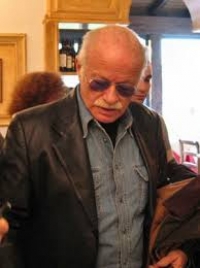
Gino Paoli (Italian pronunciation: ; born 23 September 1934 in Monfalcone) is an Italian singer-songwriter. He is a seminal figure who has written a number of songs widely regarded as classics in Italian popular music, including: "Il cielo in una stanza", "Che cosa c'è", "Senza fine" and "Sapore di sale".
Bobby Cronin
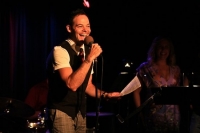
BOBBY CRONIN is a fast-rising, hard-working composer/writer who "...thinks big. In all ways. Writing in a contemporary musical theatre vein, the songs are passionate and powerful in a take-no-prisoners way that will knock your socks off." Rob Lester, Cabaret Exchange.
Robert Gaudio
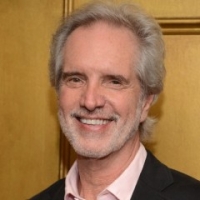
Robert John "Bob" Gaudio (born November 17, 1942) is an American singer, songwriter, musician, and record producer, and the keyboardist and backing vocalist of the Four Seasons. Gaudio wrote or co-wrote and produced the vast majority of the band's music, including hits like "Sherry" and "December, 1963 (Oh, What a Night)". Though he no longer performs with the group, Gaudio and lead singer Frankie Valli remain co-owners of the Four Seasons brand.
Perotin
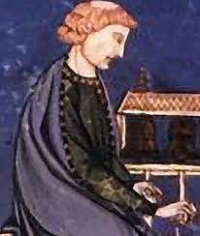
Pérotin (fl. c. 1200) was a composer associated with the Notre Dame school of polyphony in Paris and the broader ars antiqua musical style of high medieval music. He is credited with developing the polyphonic practices of his predecessor, Léonin, with the introduction of three and four-part harmonies.Other than a brief mention by music theorist Johannes de Garlandia in his De Mensurabili Musica, virtually all information on Pérotin's life comes from Anonymous IV, a pseudonymous English student.
Eduardo Hontiveros
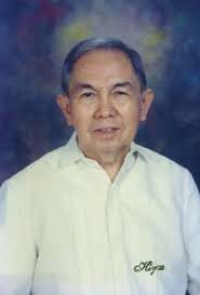
Rev Fr Eduardo Pardo Hontiveros, SJ PMM(Ph) (20 December 1923 – 15 January 2008), also known as "Fr. Honti", was a Filipino Jesuit composer and musician, best known as an innovative hymnwriter behind popular Philippine liturgical music.
Phil Collins
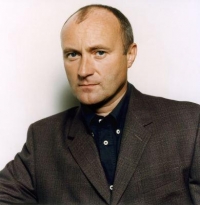
Philip David Charles Collins, LVO (born 30 January 1951 Chiswick, London) is an English singer-songwriter, drummer and actor best known as the lead singer and drummer of English progressive rock group Genesis and as a Grammy and Academy Award-winning solo artist. He has also appeared in several films.
Collins sang the lead vocals on eight American chart-toppers between 1984 and 1989; seven as a solo artist and one with Genesis. His singles, often dealing with lost love, ranged from the drum-heavy "In the Air Tonight", to the dance pop of "Sussudio", to the political statements of his most successful song, "Another Day In Paradise". His international popularity transformed Genesis from a progressive rock group to a regular on the pop charts and an early MTV mainstay. Collins' professional career began as a drummer, first with obscure rock group Flaming Youth and then more famously with Genesis. In Genesis, Collins originally supplied backing vocals for front man Peter Gabriel, singing lead on only two songs: "For Absent Friends" from 1971's Nursery Cryme album and "More Fool Me" from Selling England by the Pound, which was released in 1973. On Gabriel's departure in 1975, Collins became the group's lead singer. As the decade closed, Genesis's first international hit, "Follow You, Follow Me", demonstrated a drastic change from the band's early years. His concurrent solo career, heavily influenced by his personal life, brought both him and Genesis commercial success. According to Atlantic Records, Collins' total worldwide sales as a solo artist, as of 2002, were 150 million.
Collins sang the lead vocals on eight American chart-toppers between 1984 and 1989; seven as a solo artist and one with Genesis. His singles, often dealing with lost love, ranged from the drum-heavy "In the Air Tonight", to the dance pop of "Sussudio", to the political statements of his most successful song, "Another Day In Paradise". His international popularity transformed Genesis from a progressive rock group to a regular on the pop charts and an early MTV mainstay. Collins' professional career began as a drummer, first with obscure rock group Flaming Youth and then more famously with Genesis. In Genesis, Collins originally supplied backing vocals for front man Peter Gabriel, singing lead on only two songs: "For Absent Friends" from 1971's Nursery Cryme album and "More Fool Me" from Selling England by the Pound, which was released in 1973. On Gabriel's departure in 1975, Collins became the group's lead singer. As the decade closed, Genesis's first international hit, "Follow You, Follow Me", demonstrated a drastic change from the band's early years. His concurrent solo career, heavily influenced by his personal life, brought both him and Genesis commercial success. According to Atlantic Records, Collins' total worldwide sales as a solo artist, as of 2002, were 150 million.
Manuel de Falla
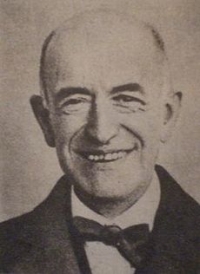
Manuel de Falla y Matheu (November 23, 1876 – November 14, 1946) was a Spanish Andalusian composer of classical music. With Isaac Albéniz and Enrique Granados he is one of Spain's most important musicians of the first half of the 20th century.
Mario Lanaro
Mario Lanaro (Malo, 1957) is an Italian choir director and composer.Mario Lanaro is an organist (a pupil of Renzo Buja), choir and orchestra conductor. He teaches at the Verona Conservatory (since 1993 he has held the chair of Choral Practice) , after having taught in the conservatories of Rovigo, Trento and Riva del Garda.At a very young age he began his career as a choir director, achieving four victories at the national choral competitions of Vittorio Veneto, Adria and Ivrea with the Valleogra di Schio Choral Group, which he conducted from 1975 to 1981, before the age of twenty.
The Beatles

The Beatles were a pop and rock group from Liverpool, England formed in 1960. Primarily consisting of John Lennon (rhythm guitar, vocals), Paul McCartney (bass guitar, vocals), George Harrison (lead guitar, vocals) and Ringo Starr (drums, vocals) throughout their career, The Beatles are recognised for leading the mid-1960s musical "British Invasion" into the United States. Although their initial musical style was rooted in 1950s rock and roll and homegrown skiffle, the group explored genres ranging from Tin Pan Alley to psychedelic rock. Their clothes, styles, and statements made them trend-setters, while their growing social awareness saw their influence extend into the social and cultural revolutions of the 1960s. After the band broke up in 1970, all four members embarked upon solo careers.
The Beatles are one of the most commercially successful and critically acclaimed bands in the history of popular music, selling over a billion records internationally. In the United Kingdom, The Beatles released more than 40 different singles, albums, and EPs that reached number one, earning more number one albums (15) than any other group in UK chart history. This commercial success was repeated in many other countries; their record company, EMI, estimated that by 1985 they had sold over one billion records worldwide. According to the Recording Industry Association of America, The Beatles have sold more albums in the United States than any other band. In 2004, Rolling Stone magazine ranked The Beatles number one on its list of 100 Greatest Artists of All Time. According to that same magazine, The Beatles' innovative music and cultural impact helped define the 1960s, and their influence on pop culture is still evident today. In 2008, Billboard magazine released a list of top-selling Hot 100 artists to celebrate the chart's fiftieth anniversary; The Beatles reached #1 again.
The Beatles are one of the most commercially successful and critically acclaimed bands in the history of popular music, selling over a billion records internationally. In the United Kingdom, The Beatles released more than 40 different singles, albums, and EPs that reached number one, earning more number one albums (15) than any other group in UK chart history. This commercial success was repeated in many other countries; their record company, EMI, estimated that by 1985 they had sold over one billion records worldwide. According to the Recording Industry Association of America, The Beatles have sold more albums in the United States than any other band. In 2004, Rolling Stone magazine ranked The Beatles number one on its list of 100 Greatest Artists of All Time. According to that same magazine, The Beatles' innovative music and cultural impact helped define the 1960s, and their influence on pop culture is still evident today. In 2008, Billboard magazine released a list of top-selling Hot 100 artists to celebrate the chart's fiftieth anniversary; The Beatles reached #1 again.
Salvator Rosa
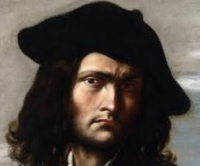
Salvator Rosa (June 20 or July 21, 1615 – March 15, 1673) was an Italian Baroque painter, poet, and printmaker, who was active in Naples, Rome, and Florence. As a painter, he has been described as "unorthodox and extravagant" as well as being a "perpetual rebel" and a proto-Romantic.
Brian “Bean” Griffith

Brian “Bean” Griffith, arranger for the Trinidad and Tobago National and New York Panorama competitions.
Train
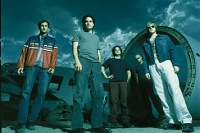
Train is a Grammy Award winning rock band formed in San Francisco, California. To date, three of their albums have peaked in the top 10 of the Billboard 200 and have sold a total of over 4 million albums in the US. Three of their songs have been top 20 hits on the Billboard Hot 100 including their biggest hit "Drops of Jupiter (Tell Me)". Train has found success on modern adult contemporary radio stations, where they have had eight songs in the top 20 of the Hot Adult Top 40 Tracks chart.
Members:
Patrick Monahan
Scott Underwood
Jimmy Stafford
Brandon Bush
Johnny Colt
Members:
Patrick Monahan
Scott Underwood
Jimmy Stafford
Brandon Bush
Johnny Colt
Beatles

The Beatles were an English rock band formed in Liverpool in 1960. Their best-known lineup, consisting of John Lennon, Paul McCartney, George Harrison, and Ringo Starr, became the greatest and most influential act of the rock era, introducing more innovations into popular music than any other rock band of the 20th century. Rooted in skiffle and 1950s rock and roll, the Beatles later utilized several genres, ranging from pop ballads to psychedelic rock, often incorporating classical elements in innovative ways. In the early 1960s, their enormous popularity first emerged as "Beatlemania", but as their songwriting grew in sophistication, they came to be perceived by many fans and cultural observers as an embodiment of the ideals shared by the era's sociocultural revolutions.
The band built their reputation playing clubs in Liverpool and Hamburg over a three-year period from 1960. Manager Brian Epstein moulded them into a professional act and producer George Martin enhanced their musical potential. They gained popularity in the United Kingdom after their first modest hit, "Love Me Do", in late 1962. They acquired the nickname the "Fab Four" as Beatlemania grew in Britain over the following year, and by early 1964 they had become international stars, leading the "British Invasion" of the United States pop market. From 1965 on, the Beatles produced what many critics consider their finest material, including the innovative and widely influential albums Rubber Soul (1965), Revolver (1966), Sgt Pepper's Lonely Hearts Club Band (1967), The Beatles (1968), and Abbey Road (1969). After their break-up in 1970, they each enjoyed successful musical careers. Lennon was shot and killed in December 1980, and Harrison died of lung cancer in November 2001. McCartney and Starr remain musically active.
The band built their reputation playing clubs in Liverpool and Hamburg over a three-year period from 1960. Manager Brian Epstein moulded them into a professional act and producer George Martin enhanced their musical potential. They gained popularity in the United Kingdom after their first modest hit, "Love Me Do", in late 1962. They acquired the nickname the "Fab Four" as Beatlemania grew in Britain over the following year, and by early 1964 they had become international stars, leading the "British Invasion" of the United States pop market. From 1965 on, the Beatles produced what many critics consider their finest material, including the innovative and widely influential albums Rubber Soul (1965), Revolver (1966), Sgt Pepper's Lonely Hearts Club Band (1967), The Beatles (1968), and Abbey Road (1969). After their break-up in 1970, they each enjoyed successful musical careers. Lennon was shot and killed in December 1980, and Harrison died of lung cancer in November 2001. McCartney and Starr remain musically active.
Charles Chaplin
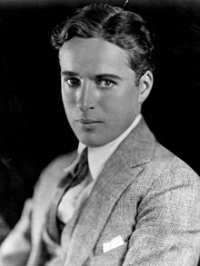
Sir Charles Spencer Chaplin KBE (16 April 1889 – 25 December 1977) was an English comic actor, filmmaker, and composer who rose to fame in the era of silent film. He became a worldwide icon through his screen persona, The Tramp, and is considered one of the most important figures in the history of the film industry. His career spanned more than 75 years, from childhood in the Victorian era until a year before his death in 1977, and encompassed both adulation and controversy.
Arnold Wholer

Arnold Wohler Musical artist Songs This Is A Bright Day! The Catching In My Dreamland · 2016 The End Of Summer
The Catching In My Dreamland · 2016 The Return Of The Deep Purple The Catching In My Dreamland · 2016
The Catching In My Dreamland · 2016 The Return Of The Deep Purple The Catching In My Dreamland · 2016
 Sheet Music Max is a site for those who wants to access popular sheet music easily,
letting them download the sheet music for free for trial purposes.
It's completely free to download and try the listed sheet music, but you have to delete the files after 24 hours of trial.
Don't forget, if you like the piece of music you have just learned playing,
treat the artist with respect, and go buy the original sheet music.
Sheet Music Max is a site for those who wants to access popular sheet music easily,
letting them download the sheet music for free for trial purposes.
It's completely free to download and try the listed sheet music, but you have to delete the files after 24 hours of trial.
Don't forget, if you like the piece of music you have just learned playing,
treat the artist with respect, and go buy the original sheet music.
